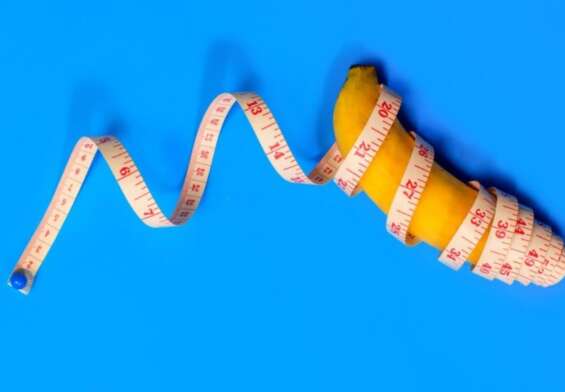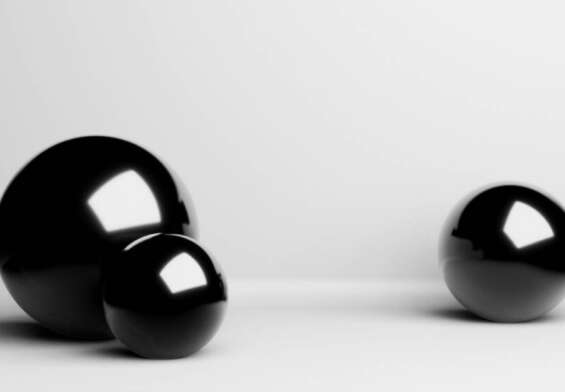
Weak Ejaculation: Causes, Symptoms, and Treatments!
Hey there, fellow FitGAG readers! Are you or your partner struggling with weak ejaculation? It’s a sensitive topic that many men shy away from discussing, but don’t worry, FitGAG has got you covered. We’ve put together a comprehensive guide on everything you need to know about weak ejaculation, including the causes, symptoms, treatment options, and coping mechanisms. So, sit back, relax, and let’s dive into this taboo topic together.
What is Weak Ejaculation?
Weak ejaculation refers to a condition where a man has difficulty ejaculating or has a low semen volume. This can result in reduced sexual satisfaction and may make it difficult to conceive a child.
Symptoms of Weak Ejaculation
Symptoms of weak ejaculation can vary from person to person, and may not always be immediately noticeable. If you are experiencing any of the following symptoms, it may be an indication of weak ejaculation:
Decreased Semen Volume
One of the most common symptoms of weak ejaculation is a reduced amount of semen during ejaculation. Men with weak ejaculation may notice a smaller volume of semen than they are used to. While this may not always be a cause for concern, it can impact fertility and sexual satisfaction.
Reduced Force Or Distance Of Semen
Another symptom of weak ejaculation is a reduced force or distance of semen during ejaculation. Men with weak ejaculation may notice that their semen does not come out as forcefully or travel as far as it used to. This can impact fertility and sexual satisfaction as well.
Delayed Ejaculation
Men with weak ejaculation may also experience delayed ejaculation, where it takes longer than usual for them to ejaculate. This can be frustrating and can impact sexual satisfaction.
Pain Or Discomfort During Ejaculation
Some men with weak ejaculation may experience pain or discomfort during ejaculation. This can be a sign of an underlying medical condition and should be evaluated by a doctor.
Erectile Dysfunction
Men with weak ejaculation may also experience erectile dysfunction, which is the inability to achieve or maintain an erection. Erectile dysfunction can be caused by a variety of factors, including age, medical conditions, and psychological factors.
If you are experiencing any of these symptoms, it is important to talk to your doctor. They can help determine the cause of your weak ejaculation and recommend appropriate treatment options.
Causes of Weak Ejaculation
Weak ejaculation is a condition that can be caused by a variety of factors, including age, medications, chronic medical conditions, prostate surgery, and psychological factors. Let’s take a closer look at each of these causes:
- Age and hormonal changes: As men age, their testosterone levels naturally decrease, which can affect the strength and duration of their erections, as well as the force and volume of their ejaculate. Hormonal imbalances caused by conditions such as hypogonadism or thyroid disorders can also lead to weak ejaculation.
- Medications: Certain medications, such as antidepressants, antipsychotics, and blood pressure drugs, can interfere with the nerves and muscles involved in ejaculation, leading to weak ejaculation.
- Chronic medical conditions: Chronic medical conditions such as diabetes, multiple sclerosis, and spinal cord injuries can affect the nerves and muscles involved in ejaculation, leading to weak ejaculation.
- Prostate surgery: Prostate surgery, such as a prostatectomy or transurethral resection of the prostate (TURP), can damage the nerves and muscles involved in ejaculation, leading to weak ejaculation.
- Psychological factors: Psychological factors such as anxiety, depression, and relationship issues can interfere with sexual function and lead to weak ejaculation.
It’s important to note that weak ejaculation can also be caused by a combination of these factors. For example, a man who has undergone prostate surgery may also experience age-related hormonal changes and take medications that interfere with ejaculation, leading to weak ejaculation.
If you are experiencing weak ejaculation, it’s important to talk to your healthcare provider about your symptoms and medical history to determine the underlying cause. This will help determine the most appropriate treatment options for you.
Risk Factors for Weak Ejaculation
Weak ejaculation can affect men of all ages, but certain risk factors increase the likelihood of experiencing this condition. In this section, we will discuss some of the most common risk factors associated with weak ejaculation.
Age
As men age, their testosterone levels naturally decline, which can lead to weak ejaculation. Older men also have a higher risk of developing chronic medical conditions that can contribute to the development of weak ejaculation.
Chronic Medical Conditions
Medical conditions such as diabetes, hypertension, and cardiovascular disease can affect the blood flow and nerve function necessary for ejaculation. Men with chronic medical conditions may also be taking medications that contribute to weak ejaculation.
History Of Prostate Surgery
Men who have undergone prostate surgery may experience weak ejaculation due to damage to the nerves and muscles necessary for ejaculation.
Use Of Certain Medications
Certain medications, such as antidepressants and alpha-blockers, can interfere with the nerve signals necessary for ejaculation. Men who take these medications may experience weak ejaculation as a side effect.
Mental Health Conditions
Psychological factors such as anxiety, depression, and stress can contribute to weak ejaculation. These conditions can interfere with sexual desire and performance and lead to weaker orgasms.
It is important to note that not all men with these risk factors will experience weak ejaculation. However, if you are experiencing weak ejaculation and have any of these risk factors, it is important to speak with your healthcare provider to determine the underlying cause and develop an appropriate treatment plan. Regular check-ups with your healthcare provider can help identify and manage any underlying risk factors that may contribute to weak ejaculation.
Diagnosis of Weak Ejaculation
If you’re experiencing symptoms of weak ejaculation, it’s important to see a doctor. A proper diagnosis can help determine the underlying cause and guide appropriate treatment options. In this section, we’ll discuss the various methods used to diagnose weak ejaculation.
- Medical history and physical exam: Your doctor will start by asking about your medical history and any medications you’re taking. They may also perform a physical exam to check for any abnormalities or signs of infection.
- Semen analysis: A semen analysis measures the quantity and quality of semen produced during ejaculation. This test can help determine if low semen volume or poor sperm motility is contributing to weak ejaculation.
- Ultrasound imaging: Ultrasound imaging uses sound waves to create images of the internal organs. This test can help identify any structural abnormalities in the reproductive system that may be contributing to weak ejaculation.
- Blood tests: Blood tests can check hormone levels and rule out any underlying medical conditions such as diabetes or hypothyroidism that may be contributing to weak ejaculation.
- Psychological evaluation: In some cases, weak ejaculation may be caused by psychological factors such as stress or anxiety. A psychological evaluation can help determine if this is the case and guide appropriate treatment options.
It’s important to note that diagnosing weak ejaculation can be a complex process and may require multiple tests and evaluations. It’s crucial to be open and honest with your doctor about your symptoms and medical history to ensure an accurate diagnosis.
Remember, early diagnosis and treatment can improve your chances of resolving weak ejaculation and improving your sexual function and overall quality of life.
Treatment Options for Weak Ejaculation
If you’re experiencing weak ejaculation, you may be wondering what treatment options are available. Fortunately, there are several effective treatments that can improve your sexual function and quality of life. Here are some of the most common treatment options for weak ejaculation:
Medications
- Alpha-blockers: These drugs can help to relax the muscles in the prostate and bladder neck, which can improve semen flow during ejaculation.
- Antidepressants: Some antidepressants, such as selective serotonin reuptake inhibitors (SSRIs), can delay ejaculation. This may be helpful for men who experience premature ejaculation.
- Hormonal therapy: Testosterone replacement therapy (TRT) may be recommended for men with low testosterone levels, which can contribute to weak ejaculation.
- PDE5 inhibitors: These drugs, such as sildenafil (Viagra) and tadalafil (Cialis), are commonly used to treat erectile dysfunction, but they may also improve semen volume and ejaculation distance.
- Testosterone replacement therapy: TRT can improve semen quality, increase ejaculation volume, and improve sexual function.
Behavioral Therapy
- Sensate focus therapy: This type of therapy involves focusing on physical sensations during sexual activity, rather than achieving orgasm. It can be helpful for men with anxiety or performance issues related to weak ejaculation.
- Masturbation exercises: Masturbating with a tighter grip or using a vibrator can help to increase stimulation and improve ejaculation.
- Cognitive behavioral therapy: CBT can help men with anxiety or depression related to sexual function, which can improve ejaculation and sexual satisfaction.
- Counseling and psychotherapy: Talking to a therapist can help you to explore any underlying psychological issues that may be contributing to weak ejaculation.
Surgery
- Vasectomy reversal: This surgery can restore the flow of sperm and improve semen quality.
- Prostate surgery revision: If you’ve had prostate surgery in the past and are experiencing weak ejaculation as a result, revision surgery may be an option.
- Varicocele repair: This surgery can improve semen quality by fixing a varicocele, which is a type of enlarged vein in the scrotum.
- Penile prosthesis implantation: This surgery involves the implantation of a device that can help to improve erectile function and ejaculation.
- Bladder neck reconstruction: This surgery can help to improve semen flow and reduce symptoms of weak ejaculation.
Lifestyle Changes
- Exercise and weight management: Regular exercise and maintaining a healthy weight can improve overall sexual health and function.
- Quitting smoking: Smoking can contribute to weak ejaculation and other sexual health issues.
- Reducing alcohol and drug use: Excessive alcohol and drug use can also contribute to weak ejaculation and other sexual health issues.
- Managing stress and anxiety: Stress and anxiety can interfere with sexual function, so finding ways to manage these issues can be helpful.
- Improving diet and nutrition: Eating a healthy diet that is rich in fruits, vegetables, and lean protein can improve overall sexual health and function.
Alternative Therapies
- Acupuncture: Acupuncture may improve sexual function and ejaculation by promoting blood flow and reducing stress and anxiety.
- Herbal remedies: Some herbs, such as ginseng and ashwagandha, may improve sexual function and ejaculation by increasing testosterone levels and promoting relaxation.
- Supplements and vitamins: Certain supplements and vitamins, such as zinc and vitamin D, may improve semen quality and sexual function.
- Yoga and meditation: These practices can help to reduce stress and anxiety and improve overall sexual health and function.
- Massage therapy: Massage therapy can improve blood flow and promote relaxation, which may improve sexual function and ejaculation.
In conclusion, if you’re experiencing weak ejaculation, there are many treatment options available. Talk to your doctor or a qualified healthcare provider to determine the best treatment plan for your individual needs.
Medications for Weak Ejaculation
There are several medications available to treat weak ejaculation. The right medication for an individual will depend on the cause of their condition, as well as other factors such as age and medical history. Here are some of the medications commonly used to treat weak ejaculation:
- Alpha-blockers: These medications are primarily used to treat high blood pressure, but they may also be effective in treating weak ejaculation caused by prostate enlargement. Alpha-blockers work by relaxing the smooth muscle in the prostate gland and bladder neck, allowing for easier ejaculation.
- Antidepressants: Certain antidepressants can also be effective in treating weak ejaculation. Specifically, selective serotonin reuptake inhibitors (SSRIs) are often prescribed. These medications increase the amount of serotonin in the brain, which can help to delay ejaculation and improve the intensity of orgasms.
- Hormonal therapy: Weak ejaculation caused by low testosterone levels may be treated with hormone replacement therapy. Testosterone replacement therapy involves taking synthetic testosterone to restore levels to a healthy range.
- PDE5 inhibitors: These medications are primarily used to treat erectile dysfunction, but they may also be effective in improving ejaculation. PDE5 inhibitors work by increasing blood flow to the penis, which can help to improve both erections and ejaculation.
- Testosterone replacement therapy: This therapy is often prescribed for men with low testosterone levels, and can improve overall sexual function including ejaculation.
It’s important to note that all medications come with potential side effects, and it’s important to discuss these risks with a healthcare provider before starting any medication regimen. Additionally, medication should only be used under the guidance of a healthcare provider, as self-medicating can be dangerous.
In summary, medications such as alpha-blockers, antidepressants, hormonal therapy, PDE5 inhibitors, and testosterone replacement therapy can be effective in treating weak ejaculation. A healthcare provider can help determine the best medication regimen for an individual’s specific needs.
Behavioral Therapy for Weak Ejaculation
When it comes to treating weak ejaculation, medication is not always the answer. In fact, behavioral therapy is often used as a first-line treatment for men with this condition. Behavioral therapy can help you learn new techniques and coping strategies that can improve your sexual function and overall quality of life. Here are some common types of behavioral therapy used to treat weak ejaculation:
Sensate Focus Therapy
Sensate focus therapy is a type of sex therapy that involves gradual exposure to sexual touch and stimulation. The goal of this therapy is to help you focus on the physical sensations of sex rather than worrying about performance or ejaculation. Sensate focus therapy is typically done in stages, starting with non-sexual touching and gradually progressing to more intimate sexual activity.
Masturbation Exercises
Masturbation exercises involve practicing techniques that can improve your ejaculatory control and increase your sexual pleasure. For example, you may be instructed to masturbate until you are close to ejaculation, then stop and wait until the urge to ejaculate subsides before resuming stimulation. This can help you learn to identify and control your level of arousal.
Cognitive Behavioral Therapy
Cognitive behavioral therapy (CBT) is a type of talk therapy that can help you identify and change negative thought patterns and behaviors that may be contributing to your weak ejaculation. CBT can also help you learn relaxation techniques that can reduce anxiety and stress, which can improve your sexual function.
Counseling And Psychotherapy
Counseling and psychotherapy can help you work through emotional issues that may be contributing to your weak ejaculation. A trained therapist can help you explore and address issues related to anxiety, depression, trauma, or relationship problems that may be impacting your sexual function.
It’s important to note that behavioral therapy may take time to work, and it may require consistent effort and practice. However, many men find that these techniques are effective in improving their sexual function and overall satisfaction. If you’re interested in exploring behavioral therapy for weak ejaculation, talk to your healthcare provider or a qualified sex therapist.
Surgery for Weak Ejaculation
For some men, surgery may be the most effective treatment option for weak ejaculation. Depending on the underlying cause of the condition, various surgical procedures may be recommended by a healthcare provider.
Vasectomy Reversal
If weak ejaculation is caused by a prior vasectomy, a vasectomy reversal may be a viable option. This procedure involves reconnecting the vas deferens tubes that were severed during the original vasectomy, allowing sperm to once again be present in the ejaculate. While a vasectomy reversal can be successful, the longer it has been since the original procedure, the lower the success rate may be.
Prostate Surgery Revision
If a man has previously undergone prostate surgery, revision surgery may be necessary if it is determined that the prior procedure caused weak ejaculation. This revision surgery may involve removing scar tissue that has formed as a result of the previous surgery or repairing damaged nerves or tissue.
Varicocele Repair
A varicocele is a condition in which the veins within the scrotum become enlarged, which can negatively impact fertility and cause weak ejaculation. Varicocele repair involves closing off these enlarged veins to restore normal blood flow and improve sexual function.
Penile Prosthesis Implantation
For men who have severe erectile dysfunction that also leads to weak ejaculation, penile prosthesis implantation may be a consideration. This surgical procedure involves implanting a device into the penis to enable an erection to occur, which can then result in more forceful ejaculation.
Bladder Neck Reconstruction
Weak ejaculation may also be caused by a blockage in the bladder neck, which can be addressed with bladder neck reconstruction surgery. This procedure involves reconstructing the bladder neck to improve the flow of semen during ejaculation.
While surgery can be an effective treatment option for weak ejaculation, it is typically considered a last resort after other methods have been tried and failed. Surgery carries risks, such as infection, bleeding, and anesthesia complications, and recovery time can vary depending on the type of surgery performed. Men considering surgical options for weak ejaculation should discuss the risks and benefits with their healthcare provider to determine if it is the right choice for their situation.
Lifestyle Changes for Weak Ejaculation
When it comes to managing weak ejaculation, lifestyle changes can play a significant role in improving sexual function and overall health. Here are some recommended lifestyle changes that can help improve weak ejaculation:
Exercise And Weight Management
Regular exercise can help improve blood flow, increase energy levels, and boost mood. Maintaining a healthy weight can also help prevent chronic conditions such as diabetes and heart disease, which can contribute to weak ejaculation.
Examples of exercises that can help include:
- Aerobic exercises, such as running, cycling, or swimming
- Kegel exercises, which help strengthen the pelvic floor muscles
Quitting Smoking
Smoking has been linked to a number of health problems, including heart disease, cancer, and erectile dysfunction. By quitting smoking, men can improve their overall health and potentially improve their weak ejaculation symptoms.
Reducing Alcohol And Drug Use
Alcohol and drugs can have a negative impact on sexual function and can contribute to weak ejaculation. Reducing or eliminating alcohol and drug use can help improve sexual function and overall health.
Managing Stress And Anxiety
Stress and anxiety can negatively impact sexual function, including weak ejaculation. Managing stress and anxiety can help improve sexual function and overall well-being.
Some ways to manage stress and anxiety include:
- Practicing relaxation techniques, such as deep breathing or meditation
- Getting regular exercise
- Seeking support from loved ones or a mental health professional
Improving Diet And Nutrition
Eating a healthy, balanced diet can help improve overall health and sexual function. Some recommended dietary changes for weak ejaculation include:
- Eating a diet rich in fruits, vegetables, whole grains, and lean protein
- Limiting processed foods and sugar
- Avoiding high-fat, high-cholesterol foods
It’s important to note that lifestyle changes alone may not be enough to fully resolve weak ejaculation symptoms. However, incorporating these changes into your daily routine can help improve overall health and potentially improve sexual function. As always, it’s important to consult with a healthcare provider before making any significant changes to your lifestyle or treatment plan.
Alternative Therapies for Weak Ejaculation
While medications, surgery, and behavioral therapy are the most commonly recommended treatment options for weak ejaculation, some men prefer to explore alternative therapies. Here are five alternative therapies that may help improve weak ejaculation:
- Acupuncture: This ancient Chinese practice involves inserting thin needles into specific points on the body to stimulate energy flow and promote healing. Some studies have shown that acupuncture can improve sexual function in men with weak ejaculation.
- Herbal remedies: Certain herbs, such as ginseng, maca, and horny goat weed, have been traditionally used to improve male sexual function. While scientific evidence is limited, some men report benefits from using these herbs to improve weak ejaculation.
- Supplements and vitamins: Supplements such as zinc, magnesium, and vitamin D may help improve male fertility and sexual function. However, it is important to talk to a healthcare provider before taking any supplements, as some can interact with medications and cause side effects.
- Yoga and meditation: These practices can help reduce stress and anxiety, which are common causes of weak ejaculation. Some specific yoga poses, such as the Cobra pose and the Bow pose, may also help improve sexual function by increasing blood flow to the pelvic area.
- Massage therapy: Certain types of massage, such as pelvic floor massage and prostate massage, may help improve weak ejaculation by increasing blood flow and reducing tension in the pelvic muscles.
It is important to note that while alternative therapies may be beneficial for some men with weak ejaculation, they should not be used as a substitute for medical treatment. It is always best to talk to a healthcare provider about any concerns regarding sexual function, as they can help determine the best course of treatment based on individual needs and medical history.
Coping with Weak Ejaculation
Weak ejaculation can have a significant impact on a person’s emotional and mental well-being, and it’s important to address these issues in addition to seeking medical treatment. Coping with weak ejaculation requires a multifaceted approach that focuses on managing the physical symptoms while also addressing the psychological aspects of the condition. Here are some coping strategies that can help:
Dealing With The Emotional Impact Of Weak Ejaculation
- Understand that weak ejaculation is a medical condition and not a reflection of your masculinity or sexual abilities.
- Practice self-care by engaging in activities that bring you joy, such as hobbies or spending time with loved ones.
- Seek therapy or counseling to process any emotional distress that may be caused by weak ejaculation.
- Connect with others who have experienced similar issues through online support groups or in-person meetings.
- Set realistic expectations for your sexual experiences and communicate openly with your partner.
Support Groups And Resources For Men With Weak Ejaculation
- Seek out resources and support groups specifically designed for men with weak ejaculation.
- Talk to your healthcare provider about any available resources in your area or online.
- Utilize online forums and communities to connect with others who may have similar experiences.
Communication With Sexual Partners
- It’s important to communicate openly and honestly with your partner about your condition and how it affects your sexual experiences.
- Discuss ways to explore new forms of intimacy and pleasure that don’t solely rely on ejaculation.
- Focus on other aspects of sexual pleasure, such as touch and intimacy, to enhance your sexual experiences.
Body Positivity And Self-Acceptance
- Practice body positivity and self-acceptance by focusing on your positive attributes and accepting yourself as you are.
- Recognize that sexual pleasure can come in many forms and is not solely dependent on ejaculation.
- Talk to a therapist or counselor if you’re struggling with body image issues related to weak ejaculation.
Remember, coping with weak ejaculation is not a one-size-fits-all approach. It’s important to experiment with different coping strategies and find what works best for you. Seek support from healthcare professionals, support groups, and loved ones to help you manage both the physical and emotional aspects of this condition.
Conclusion
Well, that’s a wrap, folks! We hope this article has shed some light on the often-overlooked issue of weak ejaculation and has given you the tools you need to take control of your sexual health. Remember, if you or your partner are struggling with weak ejaculation, you’re not alone. There are a plethora of treatment options available, from medications and surgery to lifestyle changes and alternative therapies. And don’t forget the power of communication and self-acceptance when it comes to coping with this condition. Thanks for reading, and stay tuned for more informative and empowering articles from FitGAG!











